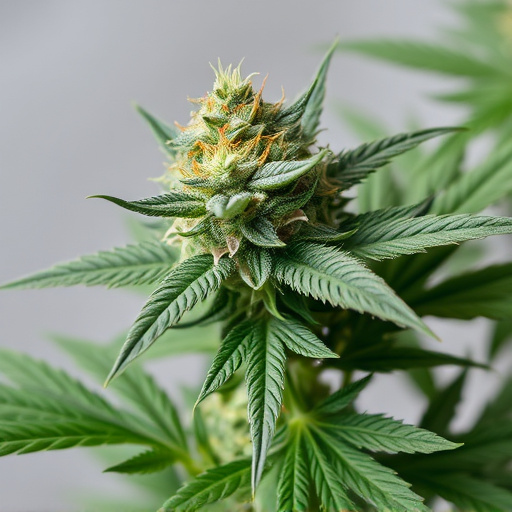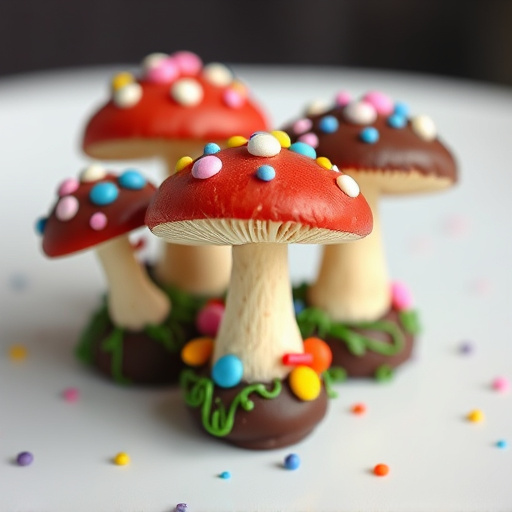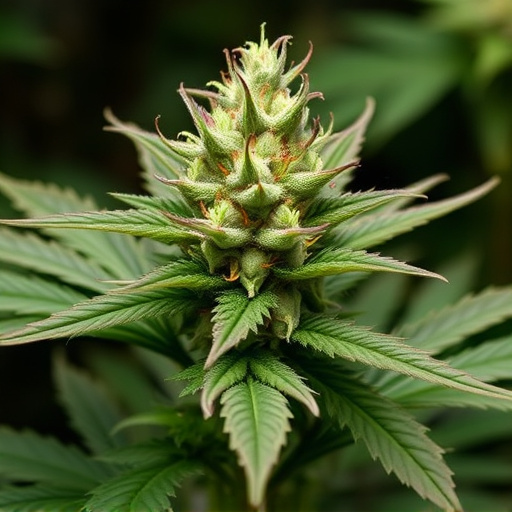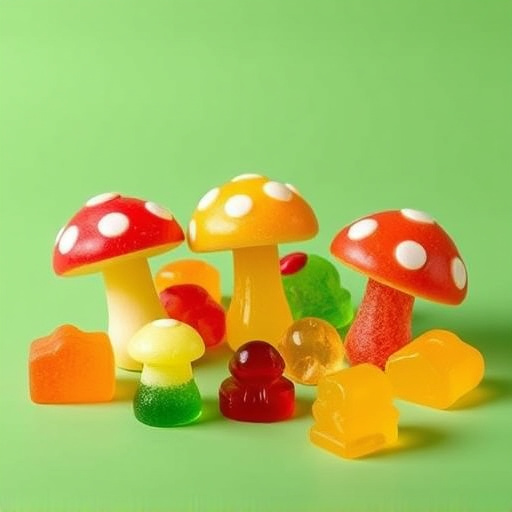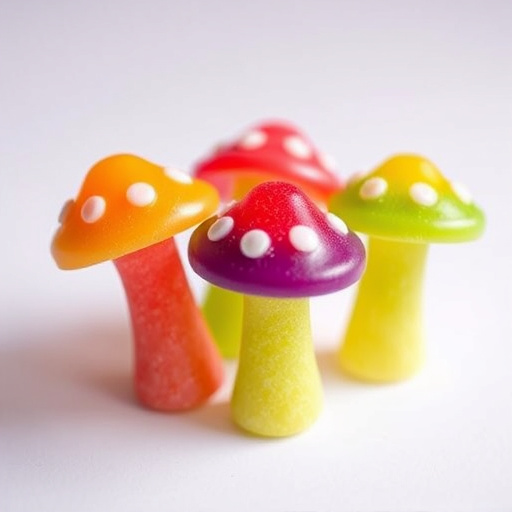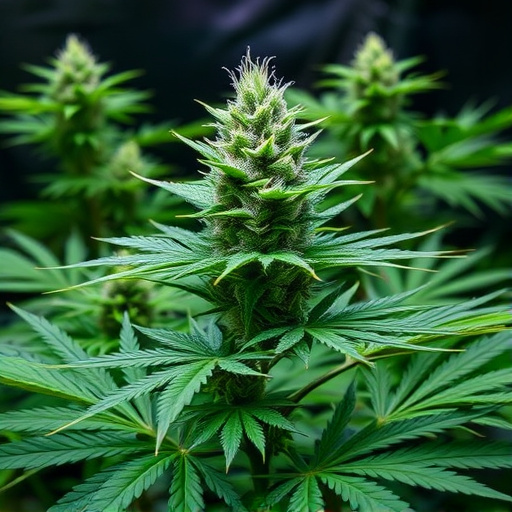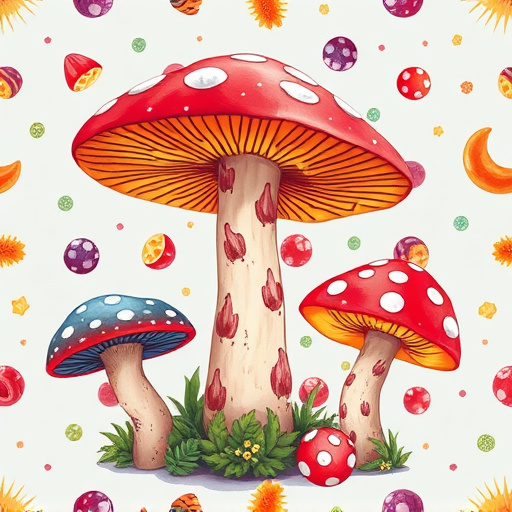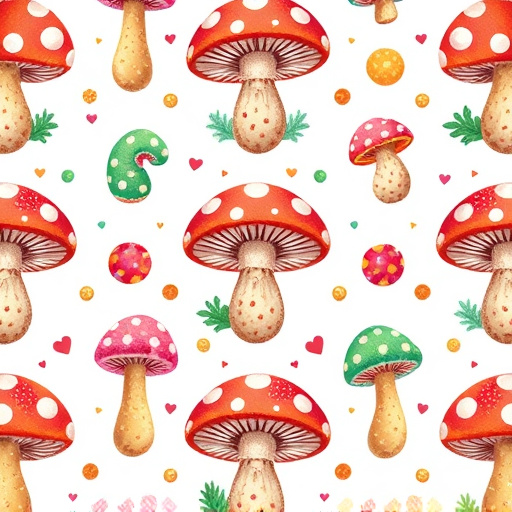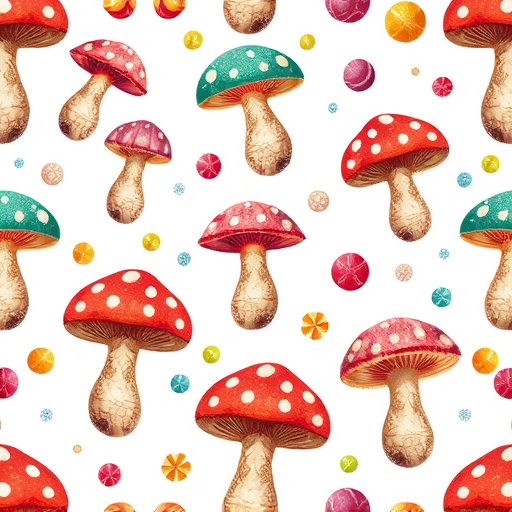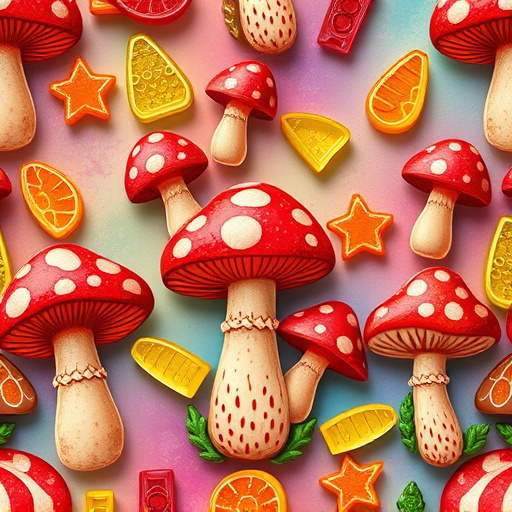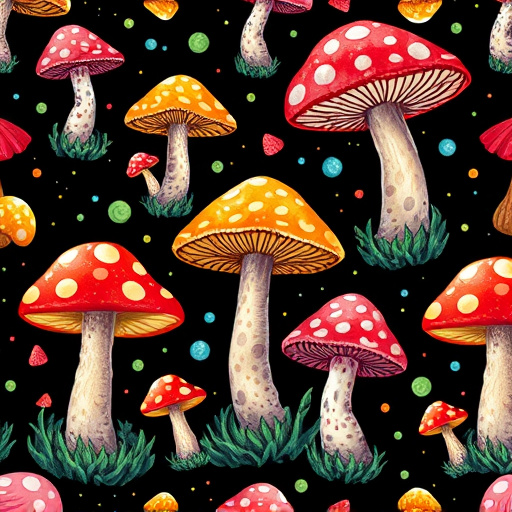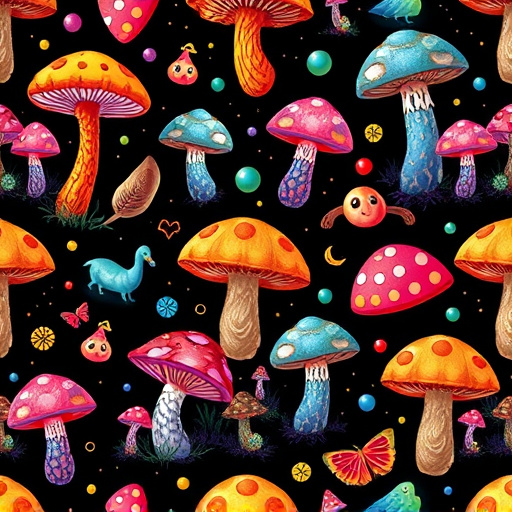Magic mushroom gummies, popular for their discreet and sweet way to consume psilocybin, offer an alternative to traditional therapy for anxiety relief. While some users report positive effects, long-term use raises safety concerns as research on potential adverse reactions like anxiety, paranoia, and disorientation is limited. Regular consumption may cause temporary changes in perception, mood, and cognition, with risks potentially worsening pre-existing mental health conditions. More studies are needed to fully understand the implications of incorporating these gummies into anxiety management routines.
Magic mushroom gummies, a modern twist on traditional mushrooms, offer a novel approach to anxiety relief. This article delves into the potential benefits and considerations of using these edible compounds for managing stress and anxiety. We explore the science behind their efficacy, dissecting the active components that may provide calm and clarity. Additionally, we examine the long-term effects of regular consumption, highlighting safety concerns and offering insights into this emerging trend in mental health support.
- Understanding Magic Mushroom Gummies and Their Composition
- Exploring the Science Behind Magic Mushrooms for Anxiety Relief
- Long-Term Effects and Safety Considerations of Regular Use
Understanding Magic Mushroom Gummies and Their Composition
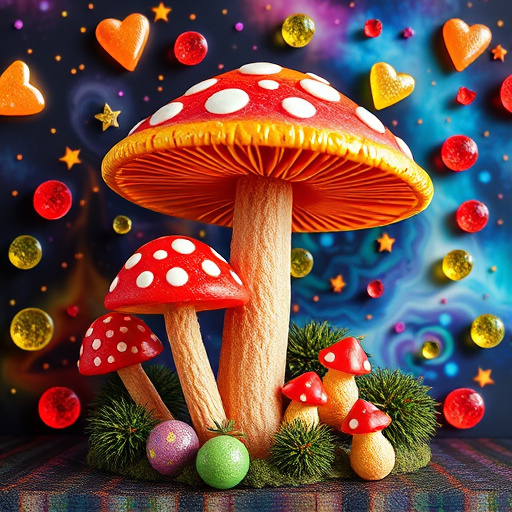
Magic mushroom gummies are edible treats infused with psilocybin, the active compound found in certain species of magic mushrooms (psilocybina). These gummies are designed to offer a convenient and discreet way to experience the potential therapeutic effects of psilocybin. The composition of these gummies varies depending on the manufacturer, but typically includes natural sweeteners like fructose or cane sugar, along with psilocybin and other supporting ingredients like lemon balm or L-theanine for enhanced calmness.
While many users report positive experiences with magic mushroom gummies for anxiety relief, it’s crucial to consider the long-term effects. Research on the prolonged use of psilocybin is still limited. Some studies suggest that a single, low-dose experience can lead to profound and lasting positive changes in attitude and outlook. However, excessive or frequent use may result in adverse reactions, including anxiety, paranoia, or disorientation. More research is needed to fully understand the long-term effects of regular consumption of magic mushroom gummies.
Exploring the Science Behind Magic Mushrooms for Anxiety Relief
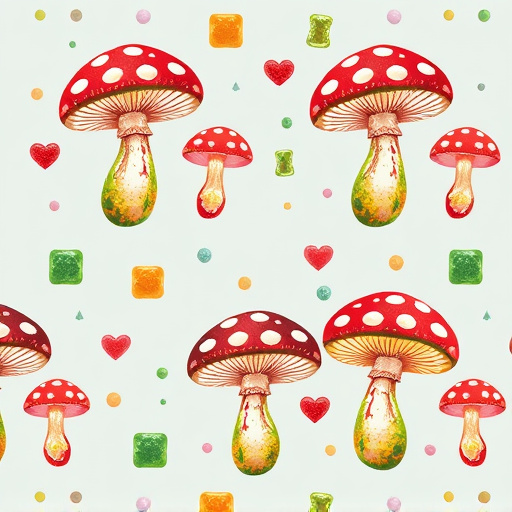
The scientific community has been exploring the potential therapeutic benefits of magic mushrooms for anxiety relief and mental health treatment for years. Research suggests that psilocybin, the active compound found in magic mushrooms, can have profound effects on the brain’s chemistry and function, particularly in relation to fear and anxiety responses. When consumed, psilocybin converts into psilocin, a substance known to interact with serotonin receptors, which play a key role in mood regulation and emotional processing.
Recent studies indicate that magic mushroom gummies, as a delivery method, could offer a more accessible and palatable option for individuals seeking long-term effects of anxiety relief. Gummies provide a controlled dose, allowing users to experience the therapeutic benefits without the intense setting or potential adverse effects associated with traditional psilocybin therapy. This modern approach to an ancient remedy paves the way for further exploration into its efficacy and acceptance as a viable treatment option for various mental health conditions, including anxiety disorders.
Long-Term Effects and Safety Considerations of Regular Use

While magic mushroom gummies may offer short-term anxiety relief, regular and long-term use comes with significant safety considerations. There is limited research on the long-term effects of consuming psychedelic treats like gummies, which can make it difficult to fully understand potential risks. Some studies suggest that repeated exposure to psychedelics could lead to temporary alterations in perception, mood, and cognition. These changes may include heightened sensitivity to sensory stimuli, altered time perception, and occasional flashbacks or vivid dreams. Additionally, for individuals with pre-existing mental health conditions, regular psychedelic use could potentially trigger or exacerbate symptoms. More research is needed to fully comprehend the long-term implications of incorporating magic mushroom gummies into routine anxiety management strategies.
While the potential of magic mushroom gummies as an anxiety relief tool is intriguing, it’s crucial to consider the long-term effects. Research suggests that psilocybin, the active compound in magic mushrooms, can offer significant short-term benefits for mental health conditions like anxiety and depression. However, regular use and long-term exposure may lead to unpredictable outcomes, as the brain’s response to these compounds is still not fully understood. Further studies are needed to determine safe and effective dosage, frequency, and potential risks associated with chronic consumption of magic mushroom gummies or other psilocybin-based treatments. Until then, it’s essential to approach this alternative therapy with caution.
